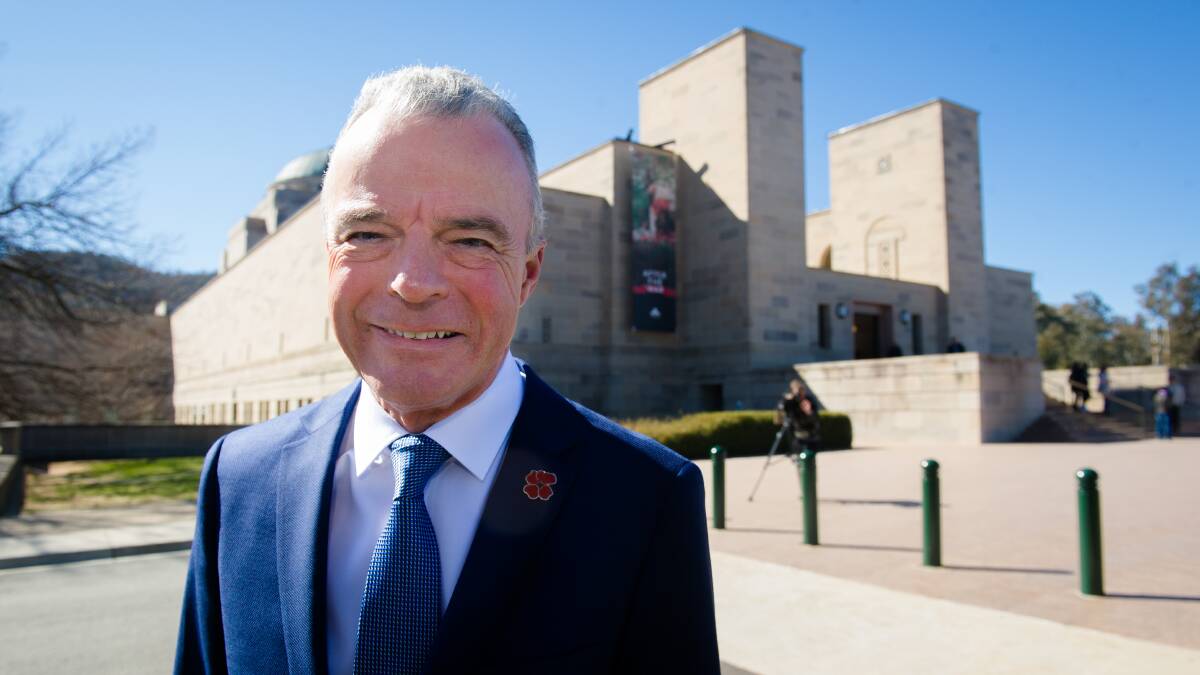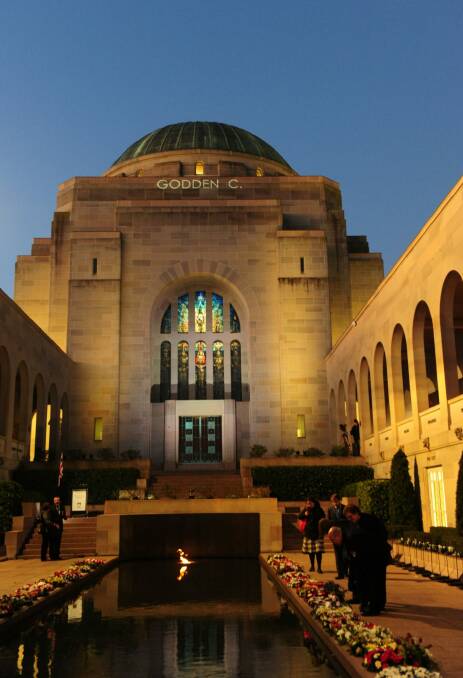
Former director Brendan Nelson has described statements opposing the proposed $498.7 million extension to the Australian War Memorial as "misleading at best, and disingenuous in part".
Subscribe now for unlimited access.
or signup to continue reading
Dr Nelson, who was director of the memorial from 2012 to 2019 and is now regional president with military and civilian aircraft manufacturer Boeing, has provided a submission to Parliamentary Standing Committee on public works, which is inquiring into the controversial extension.
The extension would involve the demolition of Anzac Hall to make way for a much larger exhibition space at the war memorial, a proposal which has inflamed public opinion and according to one large submission from academics and heritage experts "cannot be justified".
Stakeholders have expressed widespread concerns about extent of the plans, the cost of the project, the lack of community consultation, and the proposal's effect on the War Memorial's heritage status.
To many, it appeared as though the proposal was presented as a fait accompli. The community consultation by the memorial was described by local residents as a "box-ticking exercise" and to make matters worse, temporary fencing went up and preparatory construction works were undertaken before the parliamentary inquiry had begun.
The Australian Institute of Architects described the proposal as having "significant potential for cumulative impact on the national heritage values of the site" arising from the "bulk, scale and location" of the developments.

The institute expressed its extreme disappointment with the way in which the building's design reference process was set up, claiming it significantly constrained "the usual creative competition design processes" which may have produced a proposal to retain the much-admired Anzac Hall.
Others have claimed that the consultation process for the project was held "behind closed doors".
Dr Nelson strongly disputes the process was shrouded and said that during the detailed business case process he "personally wrote and hand signed 134 letters to a range of individuals and stakeholder organisations inviting their input into public consultations in relation to the project".
"Recipients included those who on [Parliamentary] Hansard have claimed that everything was 'behind closed doors'," he said in his submission.
"A series of public, national meetings were convened to which all were welcome to attend and express a view.
"A number of those who are now vocal critics of the plans - e.g. the National [sic] Institute of Architects - did not even show me the courtesy of a reply, let alone engage with the project."
He added that the designs for the extensions "were chosen by a jury of eminent architects who were in complete consensus of the choices they made".
The former minister for defence and education, science and training is now president of Boeing Australia, New Zealand and South Pacific. This company is a corporate sponsor of the Australian War Memorial and one of its key "commercial partners".
Boeing has just secured a contract extension worth $280 million for the RAAF's Super Hornet and EA-18G "Growler" combat aircraft, and is a potential key supplier for the Department of Defence's new "Loyal Wingman" unmanned drone aircraft project, potentially worth hundreds of millions of dollars to Boeing over the next 30 years.
Since his departure from the director role, he has been the subject of some thinly-veiled personal attacks, with some describing the proposed extensions as "a monument to Brendan Nelson".
"While clearly this is not the case, it reveals the motives of a number of those opposing this project so desperately needed for the 100,000 young veterans our nation has created over the past 20 years," Dr Nelson said.

